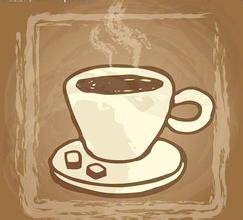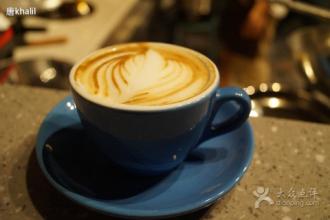Introduction to the flavor and taste of Indonesian Fuyin Manor Coffee Manor treated by sun treatment
This kind of coffee is called "the most fragrant poop since there is shit". Although its name is not very elegant, it is true. It is the poop of an arboreal wild animal called "civet" on the Indonesian island of Sumatra. Local farmers usually regard the discovery of "civet" feces as a gift from heaven, because not all "civets" feces can be luckily found. Once several such "coffee beans" are found, the locals will bend over and pick them up, collect them carefully, and then go through several processes such as selection, drying, deodorization, processing and roasting to produce the rarest, most unique and most expensive coffee in the world. For coffee lovers, drinking a cup of Jamaica's Blue Mountain is nothing special, but if you can drink a cup of Kopi Luwak (also known as civet coffee). There will be no regrets in this life.
This kind of coffee is called "the most fragrant poop since there is shit". Although its name is not very elegant, it is true. It is the poop of an arboreal wild animal called "civet" on the Indonesian island of Sumatra. Local farmers usually regard the discovery of "civet" feces as a gift from heaven, because not all "civets" feces can be luckily found. Once several such "coffee beans" are found, the locals will bend over and pick them up, collect them carefully, and then go through several processes such as selection, drying, deodorization, processing and baking to create the rarest, most unique and most expensive coffee in the world. "as a result, the price of Kopi Luwak, a rare treasure, remains high. I'm afraid you have to prepare 50 pounds for a cup of such coffee. And it may not be found everywhere.
"civets" are omnivores. They are withdrawn by nature and like to walk at night. They live in tropical rain forests, subtropical evergreen broad-leaved forests, mountain thickets or hills, mountains and grasses below 2000 meters above sea level. Its food includes small beasts, birds, amphibians and reptiles, crustaceans, fruits and seeds of insects and plants. The civet likes to choose the most mature, sweet, juicy coffee fruit in the coffee tree as food, while the coffee fruit passes through its digestive system and is digested only by the pulp on the outside of the fruit. The hard coffee beans are then excreted intact by the civets' digestive system. This is the "natural fermentation method" once scoffed by Americans. It is said that when Americans hear about such a way of making coffee, it is regarded as a fantasy. It was not until it was reported by National Geographic magazine that they became interested in it. For coffee lovers, drinking a cup of Jamaica's Blue Mountain is nothing special, but if you can drink a cup of Kopi Luwak (also known as civet coffee). There is no regret in this life. in the international market, Luwak coffee has always been a veritable luxury, and one of the main reasons is that it is not made by people but by wild animals. Traditionally, the coffee fruit is washed or sun-treated, removing the skin, pulp and sheep skin, and finally taking out the coffee beans, but Luwak coffee is made by natural fermentation in wild animals. Besides,

These wild animals are found only on small islands such as Indonesia, and their time and place are mysterious, and their numbers are dwindling. Although Indonesia has claimed that the number of "civets" has rebounded steadily through protection and artificial feeding, the temptation of human taste buds, which depends on its digestive system, cannot be compared with the products of the industrial era.
Important Notice :
前街咖啡 FrontStreet Coffee has moved to new addredd:
FrontStreet Coffee Address: 315,Donghua East Road,GuangZhou
Tel:020 38364473
- Prev

Introduction to Coffee Manor Paradise Bird Manor in Papua New Guinea
A documentary that reflects the contact process between highland aborigines and modern civilization. The film is called first contact (first contact). After its release in 1983, the film shocked the world and won numerous awards. Images like this have never been seen before and have never been seen since, and they are really excellent. The follow-up story is also wonderful: Mick grew up in the tribe with Joe, the son of the local aborigines, and later in
- Next

Jamaican Coffee Manor Atlanta Manor Flavor introduction to the characteristics of Jamaican Coffee
Even the largest landowners in the region are small-scale growers by international standards, many of whom are small landowners, and their families have been working on this land for two centuries. The difference in transportation between Blue Mountain coffee and other coffee is that it is transported in wooden barrels with a capacity of 70 kilograms, which is Bon produced in Guadeloupe in the last century.
Related
- Does Rose Summer choose Blue, Green or Red? Detailed explanation of Rose Summer Coffee plots and Classification in Panamanian Jade Manor
- What is the difference between the origin, producing area, processing plant, cooperative and manor of coffee beans?
- How fine does the espresso powder fit? how to grind the espresso?
- Sca coffee roasting degree color card coffee roasting degree 8 roasting color values what do you mean?
- The practice of lattes: how to make lattes at home
- Introduction to Indonesian Fine Coffee beans-- Java Coffee producing area of Indonesian Arabica Coffee
- How much will the flavor of light and medium roasted rose summer be expressed? What baking level is rose summer suitable for?
- Introduction to the characteristics of washing, sun-drying or wet-planing coffee commonly used in Mantenin, Indonesia
- Price characteristics of Arabica Coffee Bean Starbucks introduction to Manning Coffee Bean Taste producing area Variety Manor
- What is the authentic Yega flavor? What are the flavor characteristics of the really excellent Yejasuffi coffee beans?

